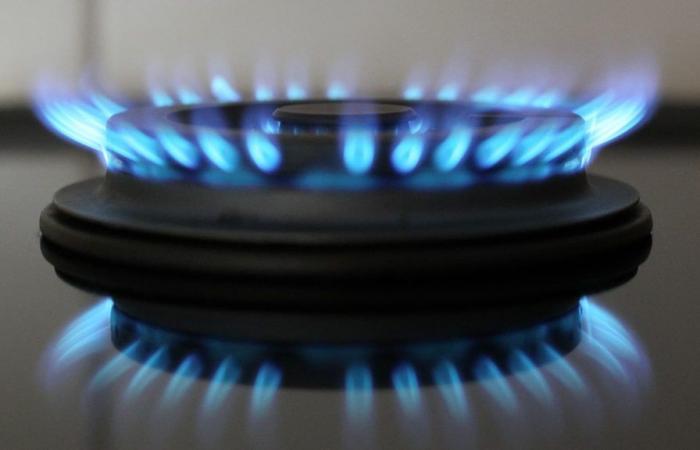From this Monday, July 1, 2024, the average gas bill will increase by 11.7% for millions of French people, mainly due to the revaluation of gas network maintenance costs.
The subject ignited the legislative campaign: from Monday, the average gas bill will increase by 11.7% for millions of French people, mainly because of the increase in maintenance costs of the gas network.
The increase has been announced for months, but its implementation has come into conflict with the political calendar, just a few days before the outcome of a decisive legislative election, largely marked by the question of purchasing power.
After a respite of several months, The average annual gas bill will increase by 124 euros, from 1,060 euros in June to 1,184 euros on July 1. According to the Energy Regulatory Commission (CRE), the sector’s watchdog, the “average benchmark price” of kWh, which has tended to fall in recent months, will be around 13 cents for July, an increase of 11.7% compared to the June index (around 11 cents/kWh).
Why this increase?
An increase to be put into perspective according to the CRE: this July price remains lower (-3.5%) than that of January, which had confirmed the end of the tariff shield, the subsidy mechanism launched at the end of 2021 to protect households from excessive increases during the energy crisis, fueled by the post-Covid recovery and the war in Ukraine.
In addition, this “benchmark price” is “indicative” and suppliers remain “free” to pass it on or not, underlines the CRE. It is possible to bring in competition by referring, for example, to the Energy Mediator’s online comparator. According to the latter, however, “the vast majority of consumers will see this increase reflected in their bills”, i.e. most of the 10 million residential customers connected to GRDF.
Why this increase now? Because of a rebound effect in prices on the gas markets where operators obtain their supplies and, above all, because of the strong increase over 4 years in gas transport costs borne by the distribution network manager GRDF.
This “toll”, invoiced to suppliers and accounting for a third of the bill, must be increased in the face of increased maintenance and modernization expenses for gas infrastructures, while allowing the integration of green gas into the pipes. And this, especially since it becomes more difficult to distribute these costs while the number of gas subscribers falls: -197,000 between the end of 2022 and the end of 2023, according to the CRE.
“It is essential to accelerate our energy transition”
An independent authority, the CRE had announced the increase in the gas bill in February, before specifying the terms on June 10, the day after the European elections and the dissolution of the National Assembly. Enough to stir up debates… The RN has warned that its first reform if it reaches Matignon would be to cancel this increase, a measure also advocated by the New Popular Front.
“The increase in the price of gas is proof by A + B that it is essential to accelerate our energy transition,” commented Monday the Minister of Economy and Finance Bruno Le Maire, guest of France Inter.
This increase is “proof that the climate skepticism of the National Rally, its refusal to move towards green energies, its inability to defend electric vehicles (…) tie us hand and foot with the gas producing countries and of oil”, added Bruno Le Maire.






